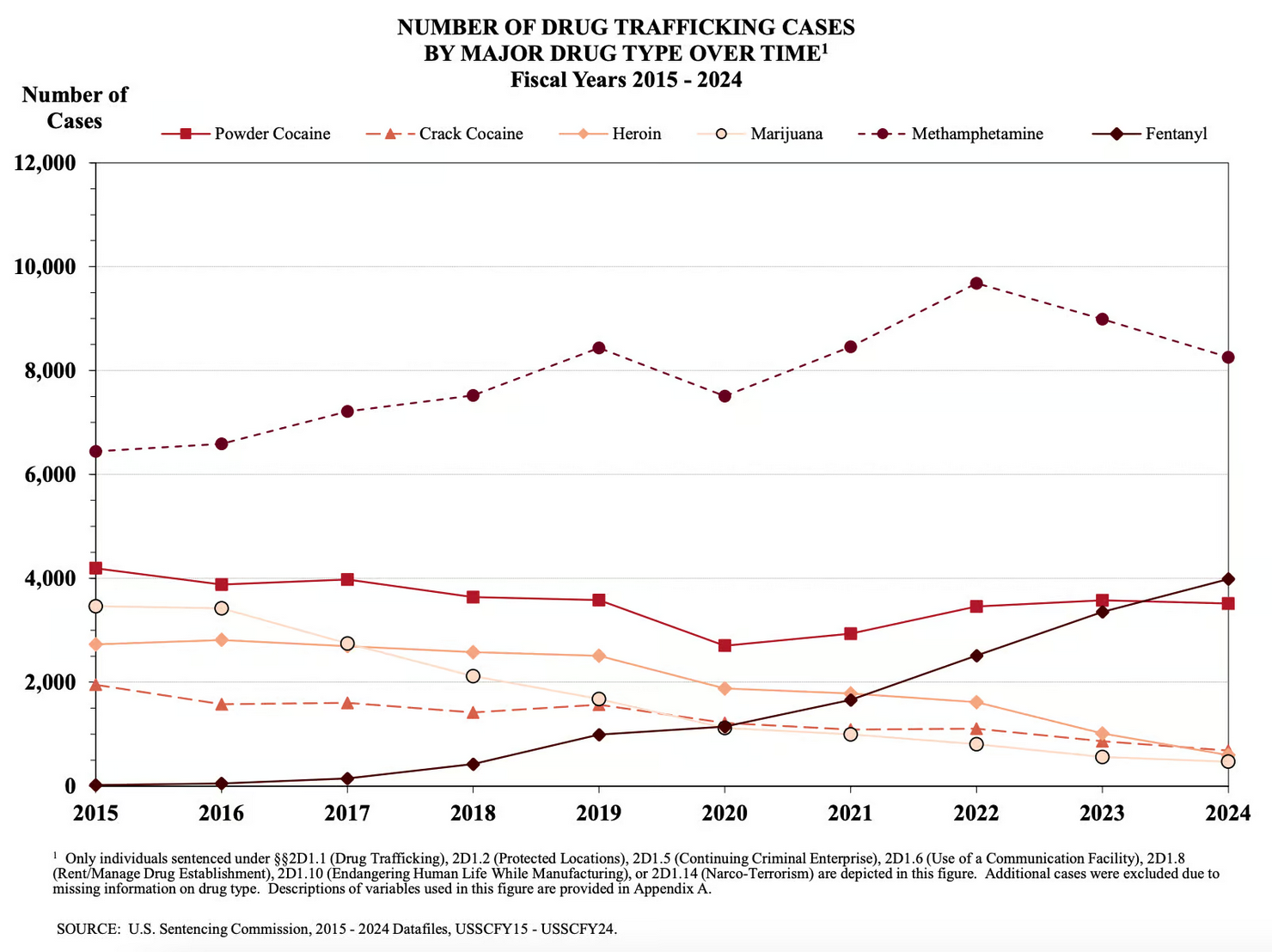A recent report from the U.S. Sentencing Commission (USSC) highlights a significant decline in federal cannabis trafficking prosecutions, coinciding with widespread marijuana legalization at the state level.
According to the USSC’s 2024 Sourcebook of Federal Sentencing Statistics, cannabis-related federal trafficking cases have dropped dramatically from roughly 5,000 in 2013 to approximately 500 in 2024.
This downward trend aligns with the increasing legalization and regulated markets for cannabis across many states, suggesting that legal access may reduce demand for illicit cannabis, subsequently lowering related federal prosecutions.
Currently, cannabis ranks below methamphetamine, powder and crack cocaine, fentanyl, and heroin in terms of federal trafficking prosecutions, reflecting a significant shift from a decade ago when marijuana was the third most commonly prosecuted drug.
Additionally, marijuana offenses constitute just 2.6% of all drug trafficking cases federally, with average sentencing lengths declining slightly to 36 months—among the lowest across drug categories.
Recent policy adjustments, such as new USSC guidelines instructing judges to treat prior cannabis possession convictions more leniently, have further reinforced this shift. Previously, past marijuana convictions often increased criminal history points, leading to harsher federal sentences.
Data from other agencies, including U.S. Customs and Border Protection and the FBI, have similarly indicated reduced marijuana-related enforcement and arrests nationwide, supporting broader cannabis legalization efforts and reform advocates’ claims that legalization decreases illicit market activity.
This evolving federal enforcement landscape could significantly influence ongoing debates and future policymaking around cannabis legalization and regulation.






